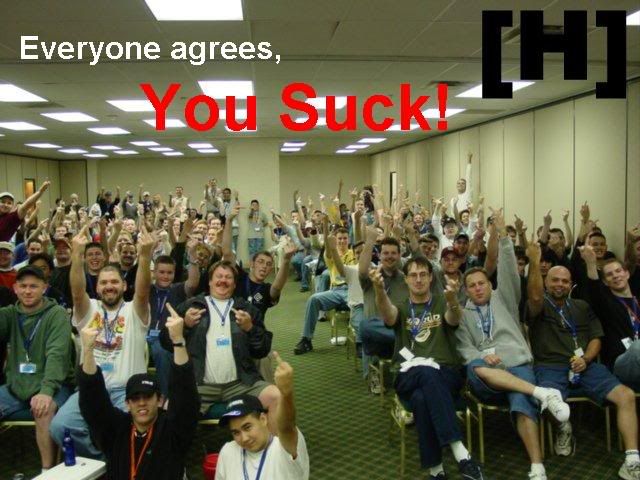Mercer is a company that issues quality of life rankings as a tool for corporations to measure compensation packages for employees taking international assignments, and for non-profit organizations to use in research and policy making.
Vancouver is fifth globally in quality of life, and the only Canadian city in the top ten.
Certainly this is only one measure - so saying Vancouver is the greatest city to live in might not be credible - but neither is the idea that it's some kind of hell-hole.
http://www.mercer.com/press-releases/quality-of-living-report-2011#Americas
2011 Quality of Living worldwide city rankings – Mercer survey
Vienna has the best living standard in the world, according to the Mercer 2011 Quality of Living Survey. Zurich and Auckland follow in second and third position, respectively, and Munich is in fourth with Düsseldorf and
Vancouver sharing fifth place. Frankfurt is in seventh, followed by Geneva in eighth, while Copenhagen and Bern share ninth place.
European cities represent over half the cities amongst the top 25 in the ranking . London (38) is the highest-ranking UK city and is followed by Birmingham (52), Aberdeen (54) and Glasgow (56). Belfast (63) is the lowest-ranking of the UK cities that Mercer surveys. Globally, the cities with the lowest quality of living are Khartoum, Sudan (217), Port-au-Prince, Haiti (218), N’Djamena, Chad (219), and Bangui, Central African Republic (220). Baghdad, Iraq (221) ranks last in Mercer’s table.
Mercer conducts the survey to help governments and multi-national companies compensate employees fairly when placing them on international assignments. Mercer’s Quality of Living reports provide valuable information and hardship premium recommendations for major cities throughout the world. Mercer’s Quality of Living index list covers 221 cities, ranked against New York as the base city.
This year, the survey separately identifies those cities with the highest personal safety ranking based on internal stability, crime levels, law enforcement effectiveness and the host country’s international relations. Luxembourg tops this personal safety ranking, followed by Bern, Helsinki and Zurich – all ranked at number two. Vienna ranks fifth, while Geneva and Stockholm both rank sixth. Baghdad (221) is the world’s least safe city, followed by N’Djamena, Chad (220), Abidjan, Côte d'Ivoire (219), Bangui, Central African Republic (218), and Kinshasa, Democratic Republic of the Congo (217).
Aberdeen and Glasgow both rank 44 and are the highest ranking UK cities on the personal safety list. Birmingham (53) and Belfast (63) both rank higher than London (68).
Slagin Parakatil, Senior Researcher at Mercer, commented: “Companies need to keep on top of current developments to ensure that their compensation packages remain competitive and continue to motivate expatriate employees. That means reviewing major events, such as social unrest, economic turmoil or natural disasters and their impact on the success of overseas placements.
“The top-ranking cities for personal safety and security are in politically stable countries with good international relations and relatively sustainable economic growth. Most of the low-scoring cities are in countries with, civil unrest, high crime levels and little law enforcement,” said Mr. Parakatil.
*************************
The worldwide rankings are produced annually from the most recent Worldwide Quality of Living Survey, conducted by Mercer. Individual reports are produced for each city surveyed. Comparative quality-of-living indexes between a base city and a host city are available, as are multiple-city comparisons. Further information is available from Mercer Client Services in Warsaw, on tel. +48 22 434 5383. Or see
www.mercer.com/qualityofliving
Mercer evaluates local living conditions in all the 420 cities it surveys worldwide. Living conditions are analysed according to 39 factors, grouped in 10 categories:
1) Political and social environment (political stability, crime, law enforcement, etc)
2) Economic environment (currency exchange regulations, banking services, etc)
3) Socio-cultural environment (censorship, limitations on personal freedom, etc)
4) Health and sanitation (medical supplies and services, infectious diseases, sewage, waste disposal, air pollution, etc)
5) Schools and education (standard and availability of international schools, etc)
6) Public services and transportation (electricity, water, public transport, traffic congestion, etc)
7) Recreation (restaurants, theatres, cinemas, sports and leisure, etc)
8) Consumer goods (availability of food/daily consumption items, cars, etc)
9) Housing (housing, household appliances, furniture, maintenance services, etc)
10) Natural environment (climate, record of natural disasters)
The scores attributed to each factor allow for city-to-city comparisons. The result is a quality-of-living index that compares relative differences between any two locations. For the indices to be used effectively, Mercer has created a grid that allows users to link the resulting index to a quality-of-living allowance amount by recommending a percentage value in relation to the index.











